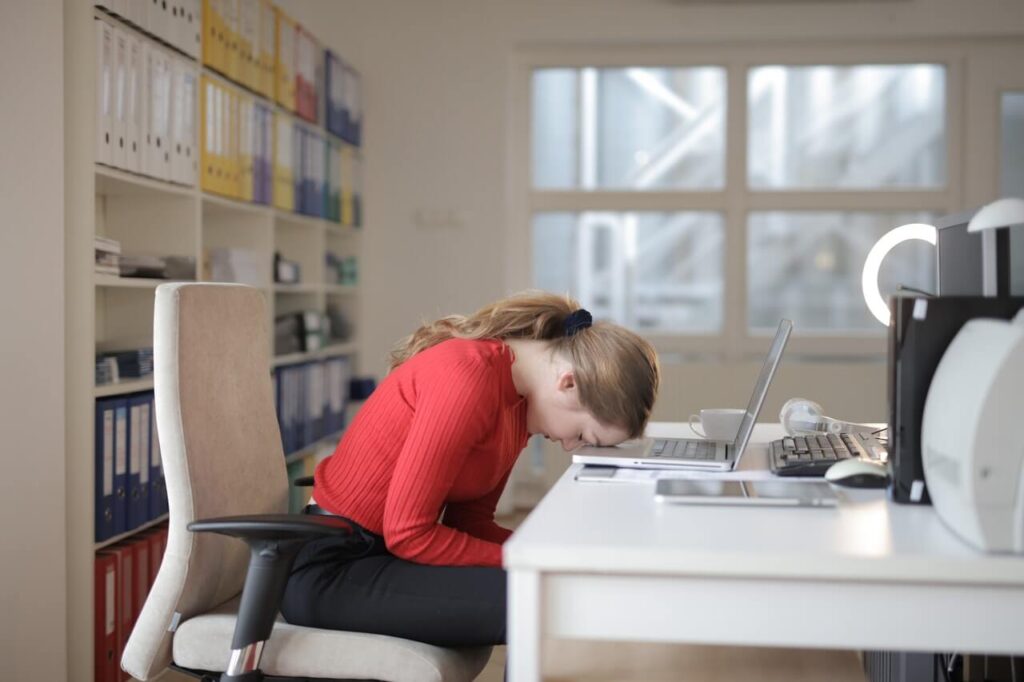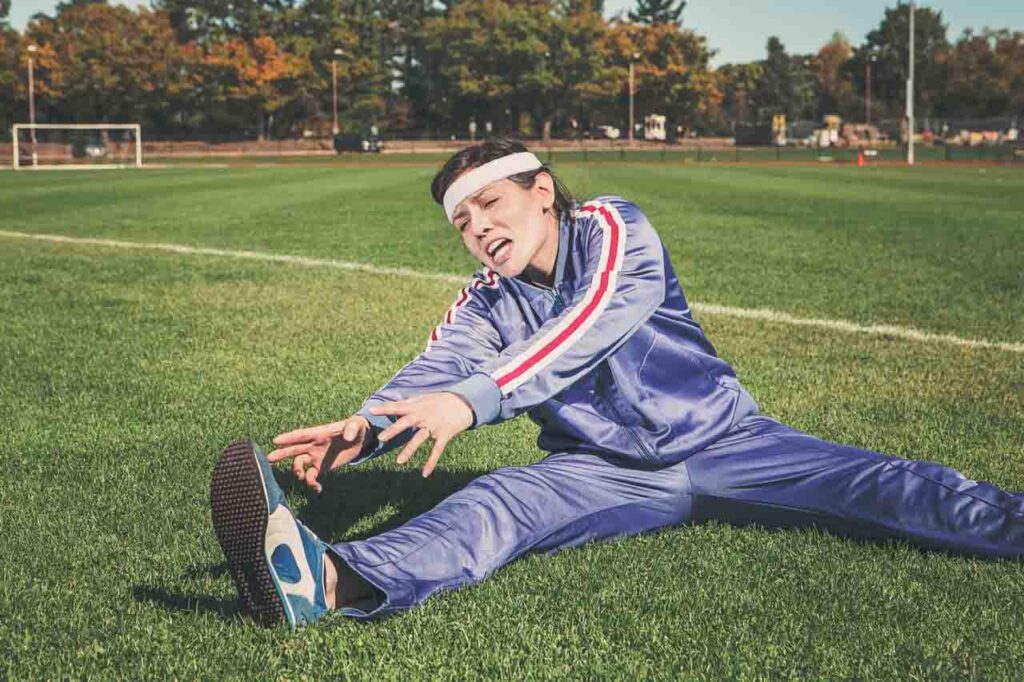Why you constantly want to sleep?

YOU WAKE UP – YOU WANT TO SLEEP, YOU COME TO WORK – YOU WANT TO SLEEP, YOU HAVE LUNCH – YOU WANT TO SLEEP … SOMETIMES DROWSINESS CATCHES UP EVEN ON WEEKENDS, WHEN, IT WOULD SEEM, OVERSLEPT ENOUGH HOURS. IS THAT FAMILIAR? DROWSINESS NOT ONLY INTERFERES WITH LEARNING, WORKING, AND RESTING, BUT CAN ALSO BE LIFE-THREATENING – FOR EXAMPLE, IF YOU DRIVE A CAR. WE UNDERSTAND WHY MORPHEUS SO WANTS TO GET YOU INTO HIS ARMS.
Look around you: a young guy is sleeping while standing on a bus, an office worker is napping at a boring presentation, and a whole line of sleepy citizens is lining up in a coffee shop behind a latte! A modern person processes a huge amount of information, and drowsiness indicates that the brain requires a break. Here are the main signs of drowsiness:
- Heavy awakening in the morning;
- Lack of vigor and energy during the day;
- The acute need for daytime sleep;
- Feeling of irritability and anxiety;
- Deterioration in concentration, memory;
- Loss of appetite.
The reasons why you constantly want to sleep are different. Some of them are natural, and you can cope with them yourself. In other cases, we can talk about serious disorders and diseases – the help of a specialist is already needed here. The main causes of drowsiness are:
- Sleep disturbance;
- Unhealthy Lifestyle;
- Overwork and stress;
- Various diseases;
- Poorly ventilated area.
Let’s consider them in more detail.
Constantly sleepy due to sleep disturbances

The most common cause of drowsiness is the most obvious: you just don’t have enough rest at night. Everyone needs a certain amount of time to get enough sleep. As a rule, it is 7-8 hours, but there are exceptions. Also, we have already said that a feeling of drowsiness arises from a violation of sleep cycles: waking up in the middle of a cycle, a person feels overwhelmed, even if he has overslept enough.
Perhaps you do not know how much you need to sleep. And if you know, you can sacrifice sleep because of work or other duties. Intentional sleep restriction is one of the most important problems in modern society. Many people think that in this way more time will be left for business, but this is not entirely true: for someone who “bites his nose”, his attention is scattered and his motivation is lost. The body does not work at full strength and goes into standby mode.
Drowsiness arises not only due to lack of sleep but also because of its poor quality. Insomnia can have a variety of reasons; one of them is the presence of artificial light. For example, watching TV or studying a news feed on a smartphone before bedtime stimulates brain activity and does not contribute to well-being in the morning.
A constant desire to sleep often bothers people with sleep disorders and a floating work schedule. Those who often go on business trips, fly from one time zone to another, and also work on the night shift, are most prone to sleep problems.
Lifestyle drowsiness
Do you like to discuss interesting topics with friends over a cup of coffee or with colleagues in the smoking-room? Then the cause of lethargy lies on the surface. Moderate doses of caffeine can increase attention span for a short time, but excessive consumption can cause disastrous effects. The adrenal glands produce the hormones adrenaline and norepinephrine, which “boost” the body and give us a sense of vitality. But if the adrenal glands work too hard and often, as happens with lovers of caffeinated drinks, then a new portion of hormones simply does not have time to form. And we know about the dangers of smoking from an early age. Nicotine causes a spasm of blood vessels, the brain lacks oxygen, and a smoker develops a feeling of lack of sleep against this background. By stimulating the nervous system, both caffeine and nicotine can cause insomnia and other sleep disorders.
Some people like to have a tight lunch, thinking that a hearty meal will provide the necessary energy for the rest of the day. However, this is not quite true. Why do you always want to sleep after eating? After the body has spent a significant part of the energy on the digestion of food, it is difficult for him to support other activities: after all, to ensure normal digestion, blood from the brain flows to the stomach and intestines. So do not overeat: to digest an excessively large amount of food, the body will need more strength.
Also, the lack of breakfast is directly related to drowsiness. Many in the morning at a frantic pace going to work, forgetting about the first – and most important – meal. Having breakfast within an hour after waking up, you start your biological clock. And when, on the contrary, you skip breakfast, the body has nowhere to take energy from.
Many people are faced with a situation where drowsiness manifests itself in the winter. The reasons for this “hibernation” lie in the features of the season. In winter, daylight hours decrease, and indeed the sun in winter can be seen infrequently. Due to central heating in the apartments, the air becomes dry. To avoid this, it is advisable to use a humidifier. Also in winter, you often feel like sleeping because of a lack of vitamins. Not always do we get the right dose of nutrients from food, and we consume fewer vegetables and fruits in winter. Therefore, doctors are advised to take vitamin-mineral complexes.
Drowsiness due to health problems
Some want to sleep due to the use of certain medications that have a sedative (calming) effect. These are antidepressants, tranquilizers, antipsychotics, etc. In this case, it is worth discussing the existing problem with the attending physician – perhaps he will advise another drug that causes less drowsiness.
Someone is constantly falling asleep due to cloudy and rainy weather. This is not surprising: melatonin, the hormone that controls our sleep, ceases to be produced only when exposed to daylight. Also, changes in atmospheric pressure in bad weather provoke a decrease in blood pressure, we get less oxygen and because of this, we want to quickly get to bed. The most pronounced meteorological dependence is observed in hypotensive patients.
Drowsiness can be a sign of serious health problems: brain pathologies, cardiovascular diseases, diabetes, bronchial asthma, etc. Therefore, if you cannot explain the causes of fatigue and drowsiness, you should consult a doctor.
All the time I want to sleep due to overwork

Why else do you want to sleep during the day? Weakness and drowsiness can be reactions to stress or overwork – both physical and mental. If at the very beginning of the influence of a stressful situation on a person his condition is accompanied by excitability and insomnia, then after prolonged stress the body wants to recover, and the most effective rest is a dream. In this case, it is recommended to sleep more than usual to make up for the lack of rest during the day. A danger to your health and sleep is depression, which often develops amid stress. Often, depression is mistaken for a bad mood or harmful character, although in fact, it is a very serious disorder. If you feel apathy, fatigue, and causeless anxiety, you should contact a specialist.
Sometimes the feeling of drowsiness is associated with chronic fatigue syndrome – it manifests itself in the form of lethargy, which does not disappear even after a long rest. Chronic fatigue syndrome often leads to a significant deterioration in vital signs.
Drowsiness due to stuffiness
Stuffiness is another reason for constant drowsiness. High levels of CO2 in the air reduce alertness, impair mood, and cause fatigue. If the situation cannot be corrected for a long time, mild discomfort will turn into severe migraine and insomnia. You can overcome stuffiness in the only way – let in fresh air from the street. But you just need to ventilate the house correctly – then drowsiness will be taken off by hand. The easiest and most effective way to organize a good microclimate is the ventilation system. A breather will help get rid of street noise and bring fresh, clean air to the apartment.
Drowsiness in different people
Let’s see who is more prone to drowsiness. Why does a woman constantly want to sleep? It is believed that in women drowsiness manifests itself more often due to fluctuations in the hormonal background. However, men also often suffer from a loss of strength: for example, low testosterone levels provoke muscle weakness and impaired attention.
The issue of drowsiness worries many pregnant women. The sleeping state is especially characteristic for the first trimester. This happens because the body gets used to hormonal changes and switches to a new mode of operation. Also, during gestation, progesterone is produced, which causes drowsiness. Fatigue and malaise will come to naught when the body is completely rebuilt. Also, the occurrence of lethargy can be affected by the emotional background – excitement, and anxiety. Therefore, during pregnancy, it is necessary to adhere to a clear sleep regimen and a calm lifestyle.
Preparing for future motherhood, many women are interested in: how much should a child sleep? Usually, newborns and children up to a year spend most of their life in a dream. The baby’s sleep regimen depends on the daily routine in the family, nutrition, and the state of the nervous system, but on average the permissible number of hours of sleep is 18 hours a day for children aged 1-2 months and 11-14 hours for children up to a year. A child spends so much time in a dream because his nervous system and brain at the time of birth were not completely formed. In a calm state, that is, in a dream, they develop most productively. However, if you notice drowsiness and suspicious symptoms (for example, pallor, lethargy, lack of appetite) that are excessive for your child’s age, then you should consult a doctor.
By the way, drowsiness in adults and infants can be caused by the same reason. We all know that parents shake their children to fall asleep. Therefore, there is no need to worry if drowsiness occurs in transport: the desire to sleep is a normal reaction to motion sickness, familiar to us all from infancy.
What to do if you constantly want to sleep

- First of all, it is necessary to observe the rules of healthy sleep: adjust the daily routine, go to bed and wake up at the same time, one hour before sleep, if possible, and turn off all light sources.
- Mornings exercises will help get rid of lethargy. It’s not necessary to prepare for the Olympics; just a few simple exercises in 15 minutes are enough.
- The charge of vivacity will give natural lighting. After waking up, open the curtains, try to walk more often in the afternoon in the fresh air.
- When there is not enough fluid in the body, dehydration occurs. Because of him, we also feel a loss of strength and drowsiness. Therefore, if you feel tired, it may be worth drinking more water.
- If you need to cheer up in the middle of the working day, rhythmic dance music will help. If your colleagues do not appreciate your zeal to dance, at least tap your fingers to the beat🙂
- If you suspect a disease, you must consult a doctor and undergo a full examination.
- If you suspect that drowsiness is due to psychological reasons, it is also important to seek help. The treatment of depression and other mental disorders requires specialist intervention. Trying to cope with them on your own can be not only difficult but also dangerous to health.
- It is necessary to ventilate the room and office space more often. Lack of air negatively affects human activity, health, and often causes drowsiness.
Sleep is very important for a full happy life. With a healthy sleep, the state of health improves, physical and mental activity, working capacity increase, a good mood appears. Get enough sleep and be healthy!






